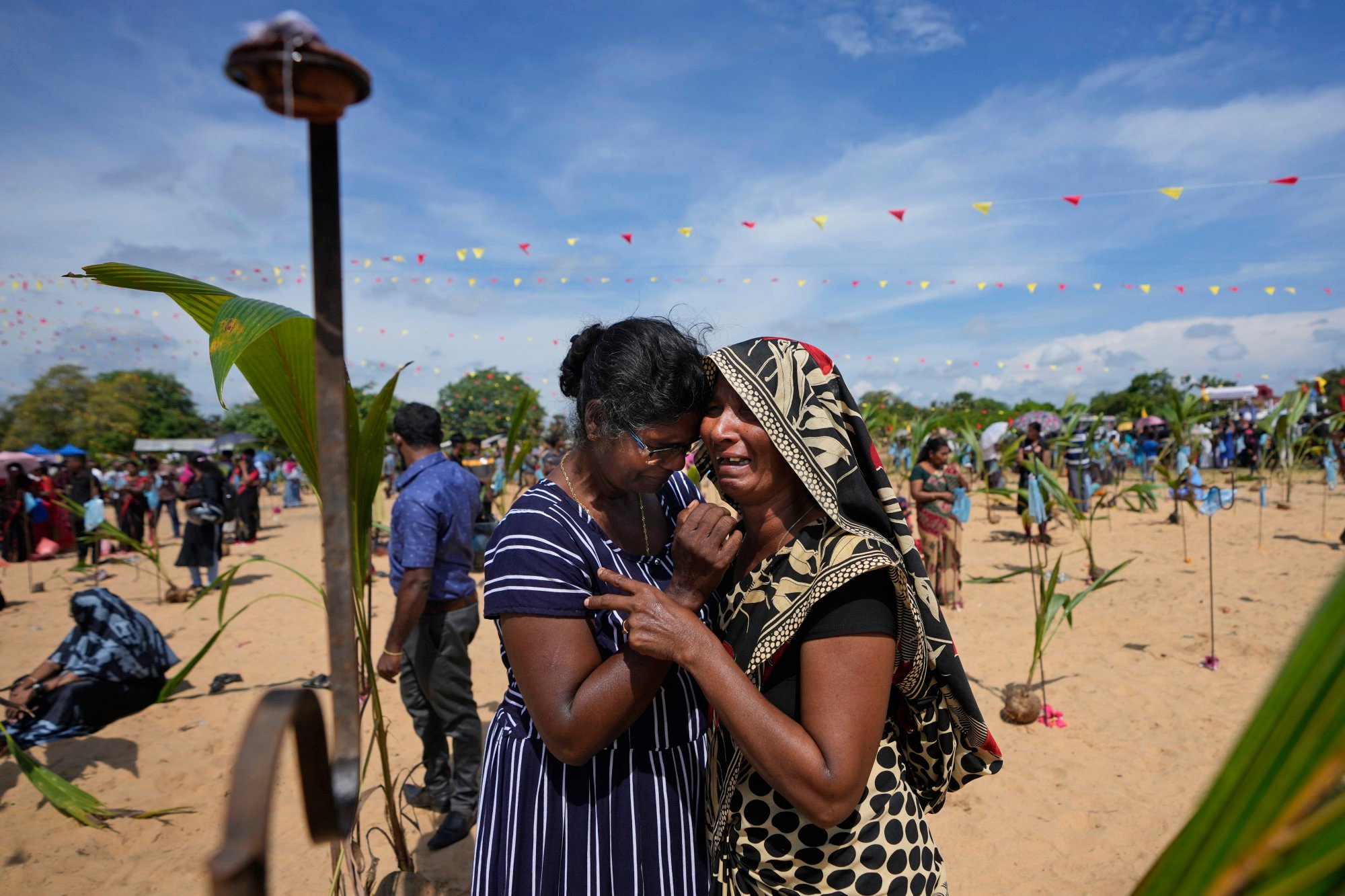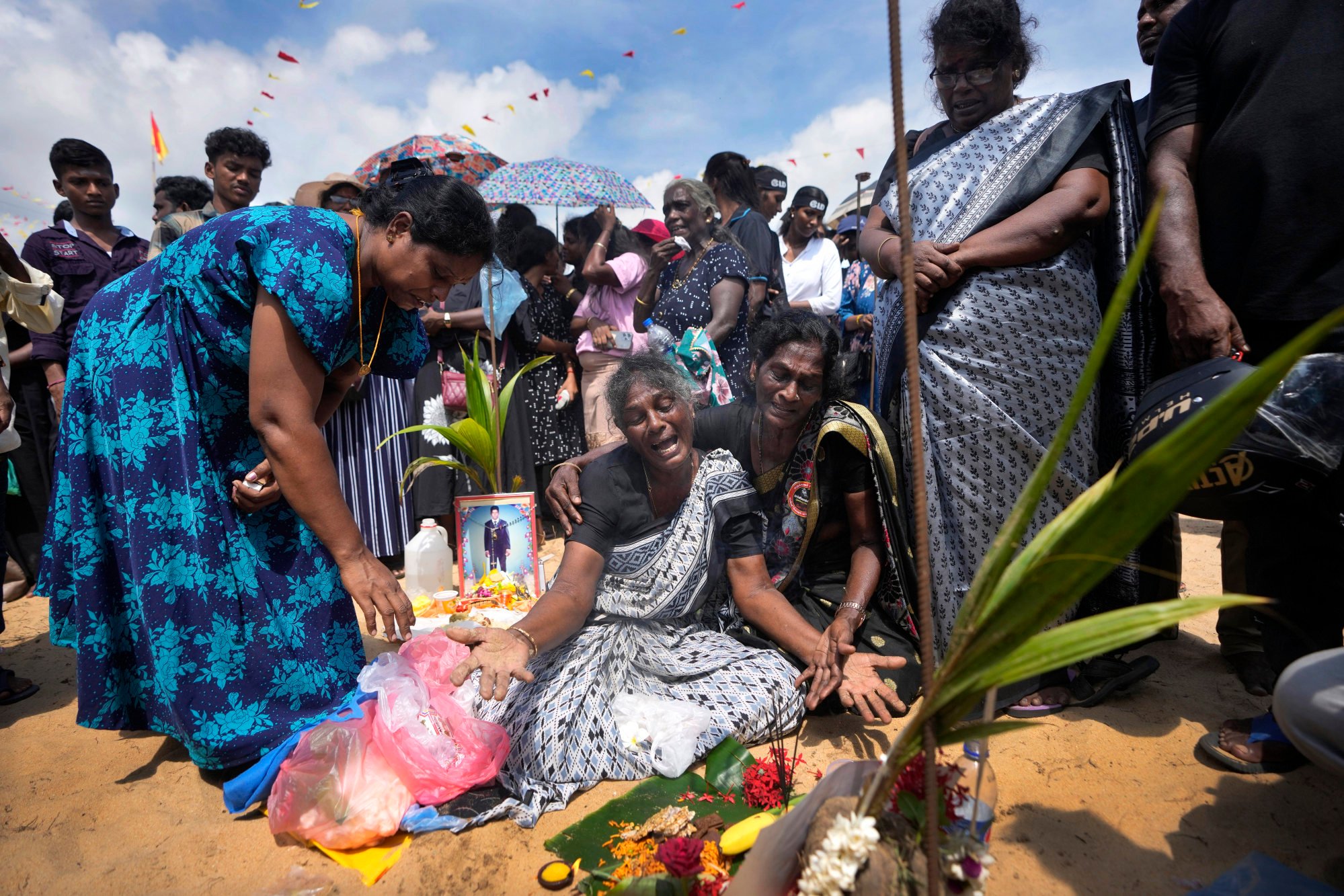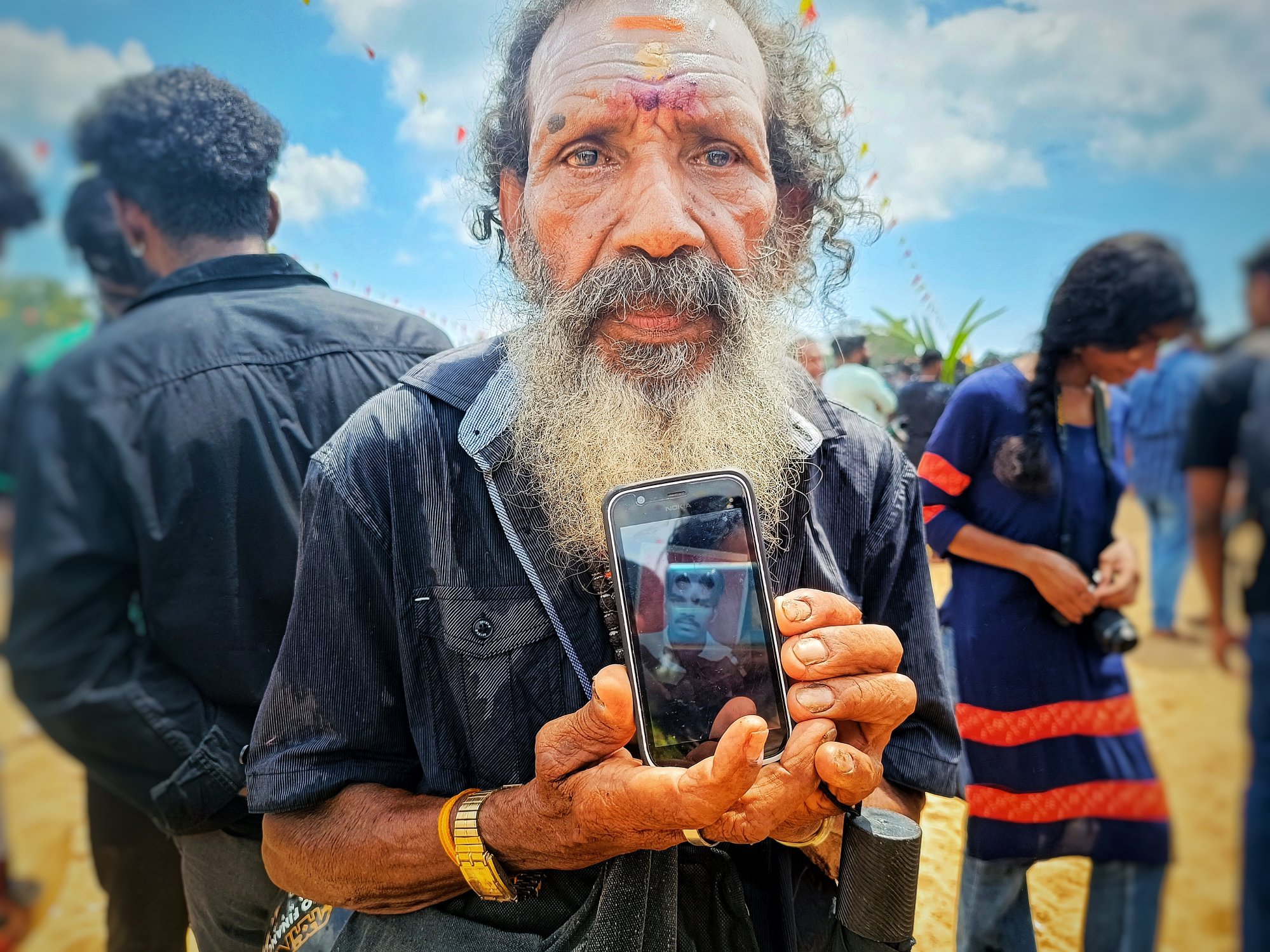
‘We want our children back’: the Sri Lankan families still demanding justice for their missing loved ones
- Sri Lankan families wait for their loved ones to come home, 15 years after they surrendered to government forces in the last stages of the country’s civil war
- Families have refused the government’s offer of death certificates and reparations, say they want authorities to tell the truth about their loved ones’ disappearance
In May 2009, Leeladevi Ananda Nadaraja’s 34-year-old son surrendered to the Sri Lankan army at a military checkpoint after being conscripted by a separatist militant group fighting for a homeland for the country’s Tamil minority.
That was the last 72-year-old has heard from her son. She has spent the last 15 years searching for him, weeping, protesting, and demanding justice.
Nadaraja’s son was among the tens of thousands of Tamils who went missing in 2008 and 2009 during the last phase of the war between the Liberation Tigers of Tamil Eelam (LTTE) and the Sri Lankan army. The country’s three-decade-long civil war ended when the government’s forces emerged victorious, but thousands of civilians were believed to have been killed during the conflict, with Amnesty International estimating about 60,000 to 100,000 reportedly going missing during its final stages.

Fifteen years after the war, families of the missing still wait for their loved ones to come home. Thousands of Tamils gathered on May 18 in northern Sri Lanka, where the last battle between the LTTE and the Sri Lankan army took place, to commemorate the dead and remember their missing family members. Their grief and loss remain fresh even after a decade and a half.
Since 2018, 225 ageing parents have died without seeing their missing children return, according to Nadaraja, who is general secretary of the Association for the Relatives of the Enforced Disappearances (ARED).
Nadaraja estimates some 16,000 families from eight districts from the country’s northern and the eastern provinces are still searching for their loved ones.
In 2016, the Sri Lankan parliament passed laws establishing the Office on Missing Persons (OMP) to investigate and provide justice for the disappeared. But in 2020, then president Gotabaya Rajapaksa caused an uproar by declaring all the disappeared were “actually dead” without providing further clarity.
Under the current government of President Ranil Wickremesinghe, the plan is to provide death certificates and reparations to the families of the disappeared.
However, Nadaraja told This Week in Asia that the families of the disappeared would not accept them.
“We want our children back,” she insists.

Nadaraja and the families she represents also refuse to accept that their loved ones have disappeared because she and the others “handed over their children to the Sri Lankan army”
These young men were recruited by the LTTE – which is considered a terrorist group in Sri Lanka and banned in India – to fight on their side, but surrendered to the Sri Lankan army in the final stages of the civil war.
“They cannot tell that our children are missing,” Nadaraja said. “If they are issuing death certificates, then the [government] has to accept that they killed our children.”
Shreen Saroor, a human-rights activist from Sri Lanka, said that in 2009, towards the end of the war, many mothers and wives trusted the government’s announcement and handed over their children and husbands for rehabilitation.
“Unfortunately, many of them never returned,” she said. “But the mothers who are demanding truth and justice are witnesses to the disappearances of their family members. The protesting mothers in [the North] know who took their loved ones away, but the government has denied their involvement,” she said.
It was the government’s responsibility to inform the families about the fate of those who had fought for LTTE and surrendered, Saroor said.
Over the years, the Sri Lankan government-established OMP has shown little interest in pursuing these cases, even claiming to have lost files and evidence in some instances, according to Saroor.
“Families demanding truth are discredited, harassed, threatened, and placed under surveillance by government officials. In this situation, it seems unlikely that reconciliation in the country is achievable,” she said.
The government did not respond to allegations on missing persons, and has repeatedly denied accusations of genocide made by Canada over the years.
Yogaraja Kanagaranjani, whose 22-year-old son went missing after surrendering to the army, said she has the evidence to prove he gave himself up.
“I still believe he is alive somewhere. Until my son returns, I am not going to give up the struggle for justice,” said the 64-year-old, adding that she did not even approach the OMP because she had little faith in the mechanism.
The United Nations Human Rights Office released a report last week urging the Sri Lankan government to take “meaningful action” to determine and disclose the fates and whereabouts of tens of thousands of people who have been subjected to “enforced disappearance over the decades and hold those responsible to account”.
“Their families and those who care about them have been waiting for so long. They are entitled to know the truth,” UN High Commissioner for Human Rights Volker Turk said in a statement.
The report recommends the establishment of an independent prosecution and a special court, and the initiation of prosecutions by international communities in their own countries.

Meanwhile, back in Mullivaikkal in Sri Lanka’s Northern Province, Muttan Devindran is still waiting for his child to return. His 27-year-old son, T. Raveeshvaran, was conscripted by the LTTE and was injured during the war, shortly before he disappeared in 2008.
Devindran, 74, believes government security forces sent his son for treatment at the Vavuniya Hospital in the North before transferring him to Welikada Prison in Colombo. He has no information on his son’s whereabouts after that.
But Devindran said he was confident he would reunite with his long-lost son one day.
“I am sure my son will come back, I believe in [the] gods,” Devindran told This Week in Asia, as he touched the ground he stood on in a gesture of faith and respect. “He will definitely be back next January.”

